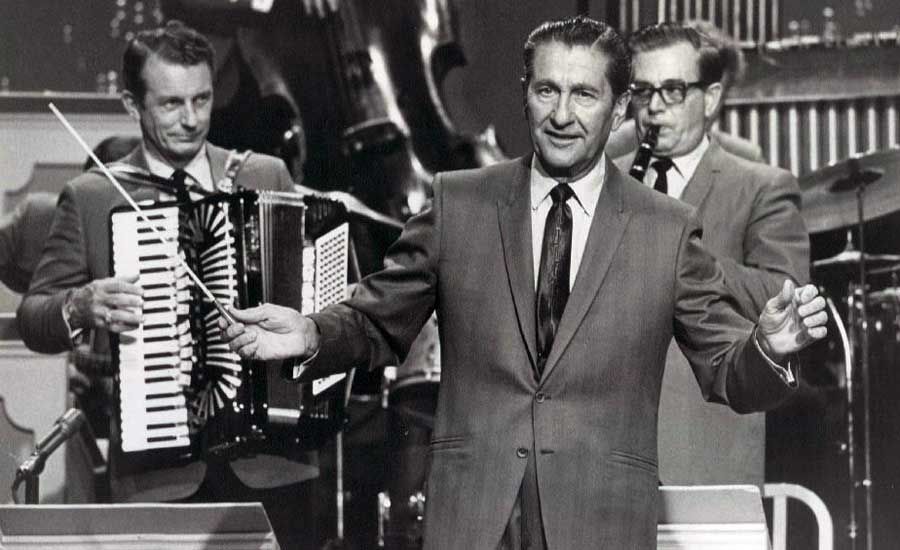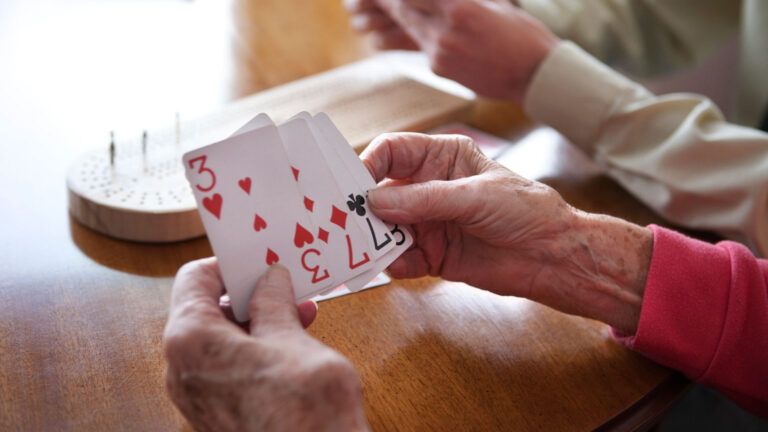The first sign that something was wrong was the way the boys acted in the poolroom.
We were playing an engagement in Dallas, South Dakota, back during the Depression, and I was on my way to check out the auditorium. When I walked by the local pool hall, I looked through the window and could see all the boys grouped around one end of a pool table, talking very earnestly about something.
I started to go in, but then stopped. There was something odd about the way they were talking with such intensity. And just as I peered in, Rollie Chestney, my piano player, looked up and caught my eye.
ENJOYING THIS STORY? SUBSCRIBE TO GUIDEPOSTS MAGAZINE!
Immediately, he reached behind him and grabbed a pool cue out of the racks, and the rest of the boys did the same thing, waving casually as they did so. I waved too, but there was something about that little scene that left me uneasy.
That night, however, I put the whole incident out of my mind because we played to an unexpectedly large crowd and made a good deal of money. When I divided the receipts with the boys, it was the most we had made in some time.
“Well, fellows,” I said happily, as I handed each of them his share, “it looks as if things are really going to change for us now!”
“Yeah,” said Rollie. “I guess maybe they are.”
The next morning I was up early and walked over to a restaurant for breakfast. I was astonished to see one of my boys already there, drinking coffee. “What in the world got you up so early?” I asked, sliding into the booth across from him. “Couldn’t you sleep last night?”
He laughed a little self-consciously. “Well, as a matter of fact, I didn’t sleep too well. Funny you should come in here, Lawrence; I was just on my way up to see you.”
“Oh?” I gave my order to the waitress. “What’s on your mind?”
He looked a little embarrassed, unhappy even, and finally said, “Well, Lawrence, the other boys have asked me to be their spokesman and come and tell you that—well, we’ve been talking things over and we think the best thing to do is to, well, to leave.”
READ MORE: LAWRENCE WELK ON LIVING WITH SHYNESS
For just a minute I didn’t understand him. “Leave? Where do you want to go?”
“No, no. I don’t mean like that. I mean we want to leave you. We want to leave the band.” He paused. “We’re quitting!”
“Oh, no,” I said instantly. “Don’t tell me that.”
“Yeah, well, we’ve been talking it over, as I said, and we just think it’s the best thing for all of us. And for you too, Lawrence. You won’t have any trouble getting another band together.”
I hardly heard him because I was still hearing him say, “We’re quitting.” “But where are you going?” I asked.
“We’ll probably go to Chicago.”
“But we couldn’t get anything in Chicago.”
“You mean you couldn’t get anything in Chicago! Maybe we can. I’m sorry, Lawrence, but”—he shrugged and spread his hands wide—“that’s the way it is. So thanks and best of luck.”
“Wait a minute!” I caught at his arm. “Just a minute. I know things haven’t been going too well, but we’re doing better now and we have the whole summer booked up! So why leave me now?”
He looked very uncomfortable. “We just feel we can do better on our own, that’s all.”
I persisted. “But why?”
Suddenly his face got red, and he leaned across the table and said tensely, “I’ll tell you why. Because of you, that’s why! We don’t want to spend the rest of our life out here in these sticks and, Lawrence, that’s where you’re gonna be for the rest of your life! You’re never gonna make it in the big time!
“Let me tell you something.” He gestured angrily. “You still bounce around like you’re playing at a barn dance somewhere and you can’t even speak English! So if you want to know the real reason we’re leaving, it’s you. You’re the one who is holding us all back.”
I was so bewildered, so dumbfounded at his sudden attack, that I just sat there staring at him, and after a moment he said awkwardly, “Lawrence, I’m sorry, but you asked for it. You wanted to know.”
I paid the waitress and got up out of the booth and was surprised to feel how unsteady my legs were. I realized I was shivering a little, and I walked out into the early morning sunshine and then went back to the hotel and did something I had never done in my life before—I went back to bed in the daytime.
I felt sick, numb, almost paralyzed with shock, and I couldn’t get those blunt words out of my mind: You’re never gonna make it in the big time; you can’t even speak English. You’re the one who’s holding us all back! Suddenly I swallowed hard and rolled over in bed and buried my face deep, deep into the pillow. I think it was the lowest moment of my lifetime.
The next few days were a blur to me. The word got around very fast, and I had several telephone calls from other small bands offering me a chance to join their groups. But something kept me from accepting their offers.
A very strong conviction began to gnaw at me: Music was my life and no matter what had happened, I should get my own group together. In the light of what had just occurred, that seemed almost idiotic, but I felt strongly about it. I would try to start all over again with a brand-new band.
A day or so later I did something I recommend for anyone who has had a life-shattering experience. I dropped into an open church during the day for some quiet reflection. It was a small church, plain but comfortable. In front of me was a crucifix. As I stared at the form on the cross, I had a flash of insight which ever since has helped me any time I feel low.
All men are vulnerable—even Jesus was as a man—and whenever we put our love and faith into other human beings, we open ourselves to hurts and disappointments. It’s a part of life—we hurt each other—often unintentionally. The only one we can trust completely is God.
I came out of church that day able to function again and soon had another orchestra together. The bitterness drained away. And when there were insults or rebuffs or defeats, I didn’t take them so personally. For how could any of our wounds compare with those He suffered for us?
Did you enjoy this story? Subscribe to Guideposts magazine.







